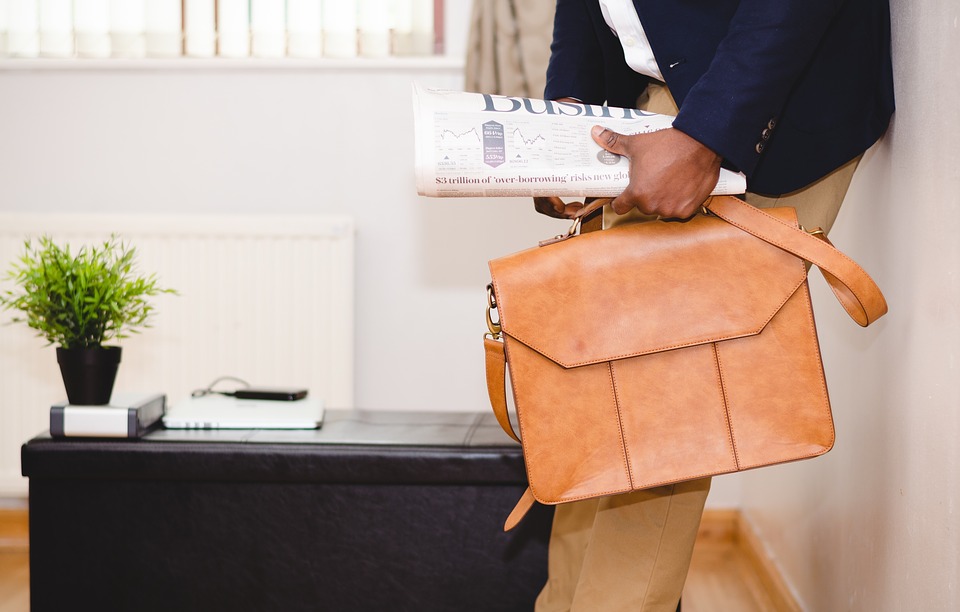At some point in your career you’re going to have to interview for a job and you’ll think to yourself, ‘I haven’t done this in forever, is the etiquette still the same?’ While things evolve and different industries prefer different things; if you’re interviewing at a traditional large corporate company for a business-like role, here are some tricks of the trade I’ve picked up along the way — as the one being interviewed and the one doing the interviewing:
Tell the hiring manager you applied: If you’re applying for a position within the same company, take a few minutes to send a note or call the hiring manager to let them know of your interest. Especially if you know the person! I always find it a bit odd if I’m the one doing the hiring and upon receiving a stack of resumes I see the names of individuals I work with daily or weekly and they never said anything of their interest in the multiple times we crossed paths since the position opened. A quick note or voicemail to say that you saw the open position and are excited to see an opportunity within their team and that they can expect your resume soon is perfect.
Wear a suit even if you’re best friends with the hiring manager: After you have some tenure with a company, it’s likely you’ll apply for a position that reports to a friend of yours or a person you’ve worked with for years or someone who has seen you at your worst or someone who asked you to apply insinuating that the jobs is yours. NEVER assume it’s yours. Wear your best suit. Act like you would if you were interviewing with a stranger (when it comes to attire). If you aren’t wearing your best (I’m not saying spend a fortune, I’m just saying present yourself in the sharpest thing you have in your closet), it implies you’re not taking it serious or it wasn’t worth your time to go the extra mile.
Positive psychology: A coworker friend of mine gave me some great advice when I applied for a new position once. He said to get a conference room 30 minutes before the interview and write down 10 reasons why I deserve the job. 30 minutes before an interview is when we get into our own head. It’s when we start thinking about who else interviewed and how there were ten qualifications in the description and how we only meet three of them and how stupid we were to even apply and how they’re going to laugh you out of the interview. We think we’re dumb, we think our outfit is stupid, we sweat a lot, we review our own resume as if we didn’t live the experience and everything is foreign. We even kind of forget what the new position is supposed to do and can no longer imagine ourselves in it. No way, people. I don’t play those games anymore. I go into a conference room and start writing things like “I am an amazing leader.” “I am a top performer.” “I have a passion for (insert whatever the job is).” “I am reliable.” The best part about this is when you get asked a question in the interview 30 minutes later, all your best qualities are top of mind and you can incorporate them in your response.
Ask about the first area to focus on: One question I really like to be asked or to ask depending upon if I’m the interviewee or interviewer is “should I get this position, what is the number one thing you’d like to see me focus on within the first 30 days?” This is a softball. If you get the job, now you know the thing, and then you do the most important part — you focus on that thing, you accomplish it, and then you remind your leader that you heard them, you did the work, and now you’re ready for the next challenge. And if you’re the interviewer and someone asks you this, it requires you to stop and think and imagine that person in the role. Another little psychology trick!
Bring a portfolio: Ew, this feels awkward. Especially if you know the person interviewing you. But go to Staples, buy a slim 3-ring binder that has a leather cover and stay late in the office one night printing out things like: your resume, proof of awards or certifications, a page that summarizes your strengths or personality type of if you’ve done any of those quizzes/books, example powerpoint, word, or excel documents, and your plan for the first 90 days of getting the role — and then slide them into the plastic page covers. It doesn’t need to be too fancy — and honestly, it’s barely ever reviewed. But if I’m the interviewee I will either leave it with the interviewer at the conclusion of the interview by saying “I’d like to leave this behind if you want to review any samples of my work products and I’ll plan to swing by next week to pick it up.” If that feels weird . . . as it often does, I will leave it with my handwritten thank-you card and will note in the card something like “I’ve left my portfolio behind for your review too.” As an interviewer, I’ve always been impressed with a portfolio, and it doesn’t even really matter what is in it. It just leaves me going ‘wow, this is very important to them and they took the time to put this together.’
Handwritten thank you card: I know, I know . . . there may be some out there that will say this is a dated practice, but I always prefer the handwritten/personal touch. You will definitely stand out if you provide a handwritten thank you and the others do an email. There are some instances where the hiring window is short and you know the thank-you won’t arrive on time, and in that case, shoot an email over. But if you’re applying for a job within the company you already work for or you pre-plan to drop the thank you in the mailbox immediately after the interview if it’s an external position — then get out a pen and an actual real card.
Do all the things you promised in your interview: If you told the manager you applied, you wore the suit, you figured out your “quick win” for the first 30 days, you left the portfolio, and you did the handwritten card, and you landed the job . . . first of all, way to go! These days, that means you won the role out of up to 49 other applicants. Celebrate, because that’s an important step. And then, do all the things you promised in your interview. Don’t lose sight of the things you told the manager and the ways you sold yourself as the best — go be the best!






